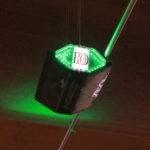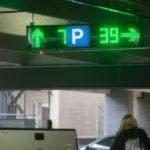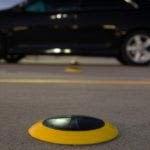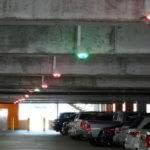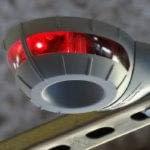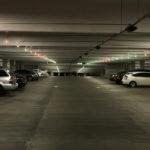Managing parking comes with challenges – unauthorized vehicles, tenant disputes, and time-consuming enforcement. License plate recognition systems are quickly becoming the standard for property managers who want smarter, more secure, and tenant-focused operations.
License plate recognition (LPR) systems use advanced cameras and software to automatically read and record vehicle license plates. For property managers, this technology offers a streamlined solution to common parking problems while enhancing security and operational efficiency.
How License Plate Recognition Systems Work
At its core, a license plate recognition system combines high-resolution cameras with sophisticated optical character recognition (OCR) software. The cameras capture images of vehicles entering and exiting your property, while the software instantly processes these images to extract license plate numbers.
The system instantly compares captured plates against your database of authorized vehicles. Residents, tenants, and visitors receive seamless access, while unauthorized vehicles trigger alerts or automated responses – eliminating guesswork and closing security gaps in real-time.
Many LPR systems integrate with existing gate controls, parking management software, and security systems, creating a comprehensive parking solution that requires minimal human intervention. In practice, the result is faster tenant check-ins and fewer enforcement disputes, eliminating the need for extra staff time.
Key Benefits for Property Managers
Automated Enforcement
Gone are the days of hiring security personnel to patrol parking areas or manually check permits. License plate recognition systems automatically identify violations and trigger immediate responses, from sending alerts to management to preventing gate access.
Enhanced Security
Beyond parking management, LPR systems create a complete audit trail with timestamps and photographic evidence. A tool not just for enforcement, but for deterring theft, vandalism, and other unwanted activity.
Improved Tenant Satisfaction
Residents appreciate reliable parking enforcement that keeps their designated spots available. Automated systems eliminate the inconsistency of manual enforcement, ensuring fair application of parking rules for everyone.
Revenue Protection
For properties that charge for parking, LPR systems help prevent revenue loss. By catching unpaid users and preventing freeloading, LPR protects your bottom line and ensures every space is revenue-generating.
Operational Efficiency
Manual parking management consumes significant staff time and resources. License plate recognition systems operate 24/7 without breaks, reducing labor costs while improving consistency in parking enforcement.
Essential Features to Consider
When evaluating license plate recognition systems, several features can make or break your implementation success.
Database Management Capabilities
Look for systems that easily accommodate your resident database and allow quick updates when tenants move in or out. The ability to set temporary access for visitors or maintenance workers adds valuable flexibility.
Integration Options
The best LPR systems integrate seamlessly with your existing property management software, gate controls, and security cameras. This seamless integration eliminates duplicate data entry and creates a unified management experience.
Reporting and Analytics
Comprehensive reporting features on occupancy and violation trends empower property managers to move from reactive enforcement to proactive planning.
Mobile Access
Property managers need the flexibility to manage the system remotely. Mobile apps that allow you to add new vehicles, review alerts, and access reports from anywhere significantly improve operational efficiency.
Implementation Considerations
Camera Placement
Strategic camera positioning is crucial for accurate plate reading. Cameras should capture vehicles at optimal angles, typically 15-20 degrees, with clear sight lines free from obstructions.
Lighting Requirements
While modern LPR systems work in various lighting conditions, consider additional lighting for areas that experience poor visibility during certain times of day.
Privacy Compliance
Ensure your license plate recognition system complies with local privacy laws and regulations. Some jurisdictions have strict rules on data storage and retention. Choosing a system backed by a trusted provider like PGS ensures compliance without operational headaches.
Staff Training
Even automated systems require human oversight. Train your staff on system operation, troubleshooting common issues, and handling tenant inquiries about parking enforcement.
Making the Right Investment
License plate recognition systems represent more than a technology upgrade—they’re a competitive advantage. From reducing operational costs to boosting security and tenant satisfaction, LPR transforms parking management into a streamlined, revenue-protecting operation.
Before implementation, assess your property’s specific needs, evaluate different system options, and consider factors like scalability, integration capabilities, and ongoing support. To guide the decision process, it helps to focus on a few key questions:
- When is an LPR system worth the investment?
- What questions should be asked of vendors during evaluation?
- What does a typical ROI timeline look like, whether through reduced labor costs, improved tenant retention, or enhanced revenue capture?
By addressing these considerations up front, property managers can select a license plate recognition system that transforms parking management from a daily challenge into an automated, efficient process that benefits both managers and residents alike.
Want to explore which LPR system fits your property? Contact us today to learn more about how our license plate recognition system can revolutionize your parking management. Our team is dedicated to helping property managers improve operations and enhance the resident experience through innovative technology solutions.



